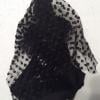Search the Community
Showing results for '"weight gain"'.
Found 15,901 results
-


Stupid scale!
WLSResources/ClothingExch replied to hollybower's topic in PRE-Operation Weight Loss Surgery Q&A
How did you do in the time before this past month? Or was this your first month? Has your period historically affected your weight? Take a close, hard look at your food diaries. You may find some choices or quantities that, on paper, will elicit an "Ooooh." Show a week's worth to the practice RD; he/she may spot things that you're unaware of. Do you record everything that goes down your gullet? You're sure? I've never heard of weight-gain from eating to lose. All things are possible, but not probable. There's a reason that you'll discover. Surgery won't stop you from being hard on yourself if you're hard on yourself habitually. Separate out the facts. The purpose for surgery is to lose weight, that's it. The emotional, behavioral and other changes you'd like to make or see are under separate-but-related categories. I think you'll better focus on the first if you don't conflate the whole shebang. -


Insane sugar cravings due to AD's
kbinaz replied to Done's topic in POST-Operation Weight Loss Surgery Q&A
I am so sorry to hear about the troubles you are having. I know that a lot of medications for M.D. cause weight gain. Did they take that into consideration before you had surgery? Would there be any way you could try a different combo of medications that might not effect you in the same way? It must be so discouraging for you to have gained back that weight. Keep us all posted on how things go for you. I hope they can think of a solution for you. -

Patient compliance: what's the big deal about it?
Jean McMillan posted a magazine article in Support
WHAT DOES PATIENT COMPLIANCE MEAN? The term “patient compliance” is a funny one for someone like me, who in some areas of her life doesn’t have the patience required for compliance. Maybe that’s just my funny little brain playing with words again. What does patient compliance mean? A compliant patient is one who follows or completes with their physician’s diagnostic, treatment, or preventive procedure(s). For example, John Doe’s blood work shows high LDL cholesterol and triglycerides (diagnosis: hyperlipidemia). He’s a compliant patient because he faithfully takes the medication his doctor prescribed, avoids eating saturated fats, and increases his exercise in order to lose some weight. His mother-in-law has high blood pressure (hypertension) and is recovering from a stroke, so in order to prevent the medical problems that challenge her mom, John’s wife Jane follows her doctor’s recommendation to reduce her own salt intake and join John for a daily walk. Their obese son Mark, who is scheduled to have bariatric surgery in two weeks, is compliant as he carefully follows his surgeon’s pre-op liver shrink diet to prepare for the surgery. Their sun-worshipping daughter Mary just had a suspicious mole removed and complies with her dermatologist’s recommendation to use sunscreen every day and give up the tanning bed. A highly commendable family, aren’t they? What about you? Are you a compliant patient? All the time, some of the time, or none of the time? Compliance is a practice that matters to me…does it matter to you? BARIATRIC PATIENT COMPLIANCE Most bariatric surgeons agree that the #1 cause of disappointing weight loss or other WLS “failure” is patient non-compliance with the surgeon’s protocol. In contrast, many adjustable gastric band patients (the disappointed ones, anyway) agree that the #1 cause of band “failure” (however they experience it) is that the band doesn’t work, no matter what (if any) protocol you follow. How can we reconcile such opposite views of WLS failure? What can surgeons do better or differently to improve patient outcomes? We already know what patient compliance means, so let’s take a look at the term “protocol.” In a general sense, protocol is a set of conventional principles and expectations that are considered binding on the members of a particular group, be it professional, social, or political. It’s also the formal etiquette and code of behavior, precedence, and procedure for state and diplomatic ceremonies. Protocol is a big deal to the British Royal Family, as witnessed by the flutter over the Queen’s order that Kate, the Dutchess of Cambridge must, as a former commoner, show reverence to the ‘blood princesses’. She is expected to curtsey to those born royal, such as Princesses Beatrice and Eugenie – both in public and in private. Although the media did a lot of speculating about Kate’s putative humiliation over this order, the importance of royal protocol can hardly be a surprise to a British citizen who marries into the Royal Family. In the medical world, the term protocol refers to the plan for a course of treatment – a physician’s diagnostic, treatment, or preventive procedure(s) like those followed by John Doe and his family. And like Kate Middleton, a bariatric patient can hardly be surprised over their surgeon’s insistence that they follow that protocol. Any surgeon worth his/her scalpel educates patients about that protocol from the time of an informational seminar to the day of a band patient’s first fill, with updates as time goes on. That’s why I feel impatient when I hear (very, very often) that new bandsters are shocked and vexed over the requirement that they follow a liquid diet immediately before and after their surgery, as well as after fills. “How can that possibly be a shock?” I ask myself. Did the patient sleep through their pre-op education, or were they so focused on the vision of themselves in a size 0 that they forgot the work that must be done to arrive at that size? Or (please say it ain’t so!) did the surgeon or other medical professionals in that bariatric program not spell out the details of their protocol when the patient was preparing for surgery? And then there’s the whole “Why does my surgeon say eat only ½ cup of food when my friend’s surgeon says eat 1 cup of food at a time?” dilemma. As I explained in Bandwagon, surgeons establish (and fine tune) patient protocols based on their own experience with their own patient population. If band manufacturers hired teams of auditors to ensure that every bariatric surgeon in North America used the exact same protocol, no one would be able to afford a gastric band, and very few surgeons would bother using the band for their patients. And a brand-new gastric band sitting in its package is completely useless until a trained and experienced surgeon implants it in a patient. Allergan and Ethicon Endo aren’t surgeons; they’re manufacturers of medical devices. So while speculating about the great variation in WLS protocols might be mildly entertaining, it’s not going to do a whole lot to get you closer to that size 0. If you choose a surgeon you trust and respect, you also choose to abide by their protocol, and enjoying that protocol is beside the point. I spent decades enjoying my own weight loss and weight gain “protocols” so much that by the time I was 54, I needed weight loss surgery. So whose protocol is healthier or more effective, mine or my surgeon’s? I lost 92 pounds by following a surgeon’s protocol. Is there a problem with that? I think not. OK, hang on a second while I climb off my soap-box. Ah, that’s better. Here I am again, standing on the ground, surrounded by living, breathing (if distant) WLS patients. It’s not fair to generalize about any of us, is it? But generalize I must in order to make a few more points. THE DOUBTING THOMAS I think some of us are by nature more likely to ignore, question, or defy authority figures, while others accept authority without voicing or even thinking a question. In the former case, we need to cultivate trust in the doctors who want to help us, while in the latter case, we need to cultivate enough trust in ourselves to dare to ask those authority figures for better or more detailed explanations of their instructions. I’m more on the defiant, or Doubting Thomas, end of the patient spectrum, but a few years ago I read a statement that struck me (out of the blue) as very true: SOME THINGS MUST BE BELIEVED TO BE SEEN I extrapolated that statement from a religious context into the context of my WLS journey (at that point in my life, I could extrapolate almost anything into the context of my WLS journey). When I had Lap-Band® surgery, I was convinced that I was a total failure at weight loss. Going into that operating room, I had to believe something I’d never seen myself do: that with the help of my band, I could succeed at weight loss and maintenance. And I did. Because truth can take a while to reveal itself, I think people like me need to ask ourselves, “What possible harm could befall me if I do follow an instruction whose proof of efficacy I can’t see right now?” Let’s go back to a previous example: your doctor tells you not to eat more than 1 cup of food at a time. You know you can easily eat 2 cups, so if you really want (or think you need) to eat all that, and no immediate negative consequences result from doing that, why shouldn’t you just go ahead and do it? Why should you blindly follow your doctor’s seemingly arbitrary and unreasonable instruction to stop eating after you’ve consumed 1 cup of food? It’s your doctor’s job to explain the “why” behind that instruction, but if she/he hasn’t done that to your satisfaction, and he/she isn’t sitting at the table with you and that plate of delicious food, I suggest that you consider what terrible thing would happen if you put away the extra cup of food for now. Will you starve to death? Really? What else might happen? Will you surrender your liberty, be forced to vote for your doctor’s favorite presidential candidate, or (worse) be compelled to clean his toilet every Saturday for the next 20 years? Oh, no. No, no, no. He’s your doctor, not your teenaged son, so let’s consider another, quite serious consequence of following his instruction. Maybe, just maybe, nothing bad will happen at all. Maybe even something good will happen. Just because your compliance doesn’t yield an instant reward doesn’t mean it won’t yield a future reward. What might that reward be? How about weight loss and the avoidance of side effects or complications? Doesn’t that sound good to you? Sure sounds good to me. I do much better at following instructions if I understand them, but I’m here to tell you that in almost 5 years of banded living, I didn’t truly begin understand my surgeon’s and dietitian’s protocol until I’d been following it for 6 or so months, and the scope of my comprehension expanded more over the next few years. In the meantime, I lost those 92 pounds I mentioned earlier. The lesson there is that you don’t have to completely understand or believe in a protocol for it to work, as long as you follow it as best you can. THE BELIEVER Now I want to talk to the folks at the other end of the patient spectrum, the obedient ones who wouldn’t even think of defying the advice of an authority figure. Their WLS journey can be bumpy too, even when they slavishly follow their doctor’s protocol, and here’s why. One of the problems with blindly following instructions that you don’t understand is that sooner or later you’re going to find yourself in a situation no one thought to warn you about. You won’t instantly know what to do, and you may waste precious time on unnecessary blood, sweat and tears. You may even end up doing something harmful. Without at least an inkling of the principles behind your doctor’s protocol, you’ll have a hard time coming up with a stopgap measure to help you survive a surprising and stressful situation. If you worry that any decision you make on your own will be the wrong one, ask yourself: “What’s the worst that could happen if I do nothing right now? What will happen if I do the ‘wrong’ thing?” Will you die? Surely not. If you’re able to breathe, ambulate, drink water, state your name and what year it is, and blood isn’t pooling in your shoes, you’re going to survive at least long enough to call your surgeon, leave a message, and wait for a call back. So unless the decision requires someone to dial 911 to speed you to the emergency room (if you can’t breathe, move, swallow, talk, remember your name or the year, stop the bleeding, or if something else life-threatening is happening), take a deep breath! And another one, and another one. Ah, that’s better! People on the Believer end of the patient spectrum are often reluctant to ask questions of their doctors because they’re afraid they’ll look stupid or make the doctor angry. I can only repeat the old saying that the only stupid question is the one you think but don’t ask. It’s extremely unlikely that your doctor is going to spank you if you ask (again), “Why can’t I take ibuprofen for my headache?” If your doctor seems irritated by a question like that, it may be because you’re trying their patience, or it could be because they’re having a bad day (worried or annoyed about something completely unrelated to you or their job, wishing they hadn’t eaten the whole pastrami sandwich for lunch, didn’t sleep well last night, etc.). It could also be because their bedside manner needs work. If that’s the case, you can set out in search of another surgeon, put up with the original surgeon’s rudeness, or do your part to lead that doctor towards kindness. If the answer to your question starts looking like a time-consuming project that your doctor doesn’t have time for right now, it’s perfectly okay to say something like, “Is there someone else in the office who could work with me on that?” or “Would it be better to make another appointment to talk about this?” THE DOCTOR Doctors, like other people, come in all shapes, sizes, and temperaments, and with varying communication skills. They’re not all made from the eternally patient, smiling, avuncular Marcus Welby mold, and not all of them are motivated solely by the desire to help other people. They’re often just as fascinated by science as by altruism. Like you and me, they work to earn money, and if their pay seems ridiculously high, just ask one of them how much money they borrowed to get through medical school, and how much they pay each year just for medical malpractice insurance. In many ways, I’m a “you get what you pay for” kinda gal. If 3 doctors quoted band surgery at a total of $13,000 to $15,000, and a 4th doctor quoted only $4,000, I’m not sure I’d feel safe with a bargain basement surgeon (nor would I assume that the $15,000 surgeon was the best). Last I heard, no courses in Bedside Manner or patient communication are required of, or even offered to medical students. Doctors must exchange important information with patients whose own communication skills vary greatly, and they must take a patient’s measure, choose a treatment plan, and explain it to the patient using a minimum of enigmatic medical terms, all within a matter of minutes before they rush off to the next patient or task. Doctors must rely on support staff to do hundreds of things to keep the doctor’s boat afloat, and it’s entirely possible that they have no idea how rude or careless or wonderful some of those people are because so much of that goes on in a way that’s invisible to the doctor. And which would you rather your surgeon focus on: the ink cartridge for the Xerox machine, or the pain in your abdomen? In medical folklore, surgeons are infamous for possessing a God complex, with big egos, enormous self-confidence, and an excess of superiority. When you think about it, it does take a lot of chutzpah to cut into another human’s flesh and fiddle with their innards in the effort to fix a problem., so it doesn’t surprise or bother me much that some surgeons have a hard time coming down to the lowly level (perceived or real) where their patients trudge through the mud of ordinary human existence. In many types of surgery, that’s not a big problem because the surgeon sees the patient maybe 3 or 4 times: the initial consult, the surgery, and 1 or 2 post-op follow-ups. Then the patient goes on their merry (we hope) way and the surgeon scrubs up and dashes into the operating room to cut into someone else’s medical problem. General surgery is usually a fix-it-and-go thing. If your diseased gall bladder gets tossed away and forgotten, do you really care if that also means your abdominal pain is also a thing of the past? But bariatric surgery, which treats a chronic and incurable disease that’s a highly complex tangle of physical, behavioral, and emotional problems, is a different matter. Successful bariatric surgery is not a fix-it-and-go proposition (and that’s reason #99 that I would hesitate to ever have surgery outside the United States, knowing that I have no local surgical back-up or support). Bariatric patients need far more education, aftercare and support than most other types of patients. I’m convinced that one of the causes of WLS failure (however you define failure) is inadequate patient education, aftercare and support. And on top of that, adjustable gastric band patients need even more education, aftercare, and support than most other bariatric patients. While I believe that too many general surgeons have been jumping on the gastric band-wagon without fully understanding the needs of those patients, it’s not fair to say that they’re all being careless or negligent when they fail to give patients what they really need. Unless they’ve had bariatric surgery themselves, they just don’t know what it is to walk in our shoes. They might consider the implanting of a gastric band to be an interesting and possibly lucrative addition to their practice without realizing that surgical expertise is only part of what the band patient needs. Doctors and other people with very high self-esteem can be hard for us ordinary mortals to deal with, but it’s a mistake to assume that they’re looking down on us. They may not be looking at or thinking about us at all, not because they don’t care about us but because their minds are so enthralled by and preoccupied with medical science. My father was a brilliant scientist whose head was so far up in the clouds that I often wondered what planet he was on. At the same time, I know he loved me when he noticed me (and I know now that nothing I could do would change that). In a sense, doctors who get heavily involved with their patients are doing those patients a disservice. The Hippocratic Oath exhorts doctors to “do no harm,” not to mop up your tears or hug you when things go wrong. If that seems harsh, consider this: doctors actually need to keep some emotional distance from their patients in order to treat them well medically. Without that distance, it would be very hard for them to make rational decisions about patient care. That’s why it’s considered poor practice for doctors to treat themselves or their loved ones. I’m not saying that it’s okay for doctors to be cold and heartless and should be excused for bad behavior. None of them are perfect (and neither are we, the patients) and you won’t find me worshipping at the altar of the AMA or the ASMBS. I’ve encountered some wonderful doctors and surgeons in my lifetime, and some bad ones too. The average American bandster might see 3-4 doctors on a regular basis (a few times a year): a primary care physician, a gynecologist (if you’re of that persuasion), a dentist, and maybe a chiropractor or a specialist like an eye doctor. The average American bariatric surgeon probably sees 20-30 patients a day (perhaps a few thousand per year). Since I’m not a mind-reader, and no one cares as much about my weight loss journey as much as I do, I figure it’s my responsibility to refresh my doctors’ memories each time I see them. I might wish that I didn’t have to repeat over and over again that (for example) I’m hearing impaired and need my doctor to look at me when he speaks, but that’s a minor issue compared to some of the bigger ones I face as a mature adult. -
Sugar is a major reason for weight gain. And has zero nutritional value. You need to focus only on foods that nourish your body after wls. That is how I approach food now. Does it provide nutrients or is it filler. If it the latter I'll take a pass. Google is your best friend on the sugar question.
-


October 2017 sleevers...how are you doing?
kjnelson replied to KDBaker's topic in Gastric Sleeve Surgery Forums
I was sleeved on October 11, 2017. I feel good about my decision. I am down 75 pounds since surgery. Down 100 pounds from my heaviest weight. Weight loss isn’t as easy now. I really have to work hard on the head game portion. Eating is too easy and nothing bothers my stomach so I really need to pay attention to avoid old habits. I still feel some restriction but I push the limits a lot. I also recently started taking some medication that causes weight gain but so far I have been able to keep my weight in check. So bottom line is, I have done well but it’s getting harder but I refuse to give up. This was a lifestyle change that I must stick too. How is everyone else doing? -


Pouch packing, major defill, now weight gain ??? Help??
rose suongas replied to rose suongas's topic in LAP-BAND Surgery Forums
Your story sounds familiar. Day two and I feel fantastic !! I have gone back to drinking my water and I eat every two hours, but very small. I am also watching what I eat. I know this is a very dangerous stage and want to avoid weight gain, so I know I will have to be careful. I have been able to sleep, and really enjoy eating and keeping it down and no heartburn. Thank you for your reply, I appreciate hearing others stories and feel this as encouragement for me. Thanks again... -


Stretching your sleeve
i1Linda replied to rcarter76's topic in POST-Operation Weight Loss Surgery Q&A
I'm only 5 months out, but I just can't see gaining back any significant weight. Granted, I still have 27 pounds to go to reach goal and the get to live the life of maintenance. I just can't eat that much and just one bite to many makes me feel awful. We made homemade individual pizzas last night (during the Cowboys game) and I made one about the size of a small bread plate for myself. Loaded it with Protein and veggies. There was NO way I could eat it all. In fact, I only at 1/4 of it and a couple bites of salad and I was DONE. Nothing else for the evening except a cup of hot tea and bottle of Water hours later. I know that there are always slider foods (milkshakes, high calorie smoothies) that can contribute to weight gain, but that's just not me. I like to eat real food that requires chewing. With my sleeve, I tend to gravitate naturally now to the protein and just can't eat much of it. -


This holidays got me, how about you????
jsea replied to DeeDee40's topic in POST-Operation Weight Loss Surgery Q&A
I too was so worried about going to my doctors this morning for my fill worried that she would scold me because I knew I had gained weight over the holidays, well needless to say I gained 4 POUNDS!! UGH, but she did not scold me. We identified the reasons for the weight gain and decided on a path forward. I recieved a fill and I'm back on track and ready to lose!! Don't be so hard on yourself, it happens. -
Thanks for the info, @mayasmomma. I take it for medical necessity, not birth control. I had lost 74 pounds a couple of years ago - and almost as soon as I got the shot - my weight shot right back up and brought friends! I had no idea what was going on or why I was gaining weight until afterwards, and someone told me that Depo was problematic! Ugh. I was so upset! I cannot take traditional birth control pills any longer because I've had pulmonary emboli and DVT, and they've tried me on a range of other pills, none have been successful in controlling my menstrual problems. The Depo shot was like a Godsend. Until I found out about the weight gain, of course! It's a certain type of hormone I have to have in certain doses. I will talk to my gyno about it, however - maybe there's something else I can take! As much as I hate it, I'm terrified to come off of the Depo!
-
The pancake parlour is pure evil!! (but i love it!) They have things on that menu so band friendly you will feel like you haven't even got a band as you clean the plate I usually get the strawberries & cream pancakes (make it the 1 pancake not 2 and get the cream & ice cream instead of just one or the other - that way if you are tight there is plenty of lube for you & if you leave half your meal it looks liek you've eaten more since you only have one pancake not 2 ~ all meals have 2 pancakes by default but there is a menu option to change to just 1). The chocolate pancake is like mudcake so if you can do mudcake you can eat it, otherwise just stay away from it - the cherries are canned and the skin & pips can be a bit painful if your tight. "IT" the banana walnut one goes down soooo easy, again get the one pancake instead of 2 and add the extra ice cream. For savoury the potato pancake goes down easy but is very very greasy, it comes with a nice side salad that always goes down well i usually eat all the salad and only 1/4 of the pancake - what they call 'fries' DO NOT ORDER - their fries are disgusting dried diced up bits of old potato that wil lhave you begging the porcalin to free you from your agony! Banded friends don't always beleiv e me and they have all lived to regret it pb'ing in the car the whole way home. Steer clear of the breakfast menu because the portions are rediclous huge, my 6'4" athletic boyfriend can't eat an entire portion there off that breaky menu so that's really saying something! He usually eats 2 items off the regular menu... savoury crepes (they are yum and all that I have tried have been band friendly especially the bolognase ones) and then a desert pancake. Just drink Water is my tip - all their drinks are loaded with cream and you'll feel crappy all day afterwards and so not worth the weight gain. I eat pancake parlour in melbourne about once a month (they are all good, eastland doncaster jam factory swarnston st etc.); everybody I know in melbourne loves it. The pancake parlour in surfers paradise is a lot different and i found it disgusting.... i dont know how the same company can own both yet have such different menus and food. The menu doesn't have pictures in the resteraunt but the website does so to get an idea of how much a serving there is (so you know wha tnot to order) have a look here: http://www.pancakeparlour.com/Menu/menu.html Have fun!!
-
I had a RNY gastric bypass surgery on 16 May 2013. As I worked my way through the recovery process, I decided to publish a short article called "How I Survived Bariatric Surgery". It is available at http://www.breadandbutterscience.com/Surgery.pdf This is my before and after photograph at around the 6 month mark. http://www.breadandbutterscience.com/Operation.jpg Since I am now 27 months post-op, I felt it was time to publish an update to the original document. It is called "How I Survived Bariatric Surgery, Part II". It is available at http://www.breadandbutterscience.com/Surgery2.pdf I have been in the "Maintenance" phase for 20 months now. I know many people are wrestling with the fear of weight gain after they bottom out. This "Part II" article documents the approach that I used.
-


Weight Loss Journey Challenges--HELP
MISTY_CEE035 posted a topic in Tell Your Weight Loss Surgery Story
Hello Group! Today is my first day here onsite. I started my lifestyle change on 3/9/2009 when I had my WLS-Lapband. I went through some immediate results but 6 years later I developed an erosion in the mouth of the stomach that caused my tool to be removed. I experienced a rapid weight gain! On April 19 2016, my surgeon revisited my case and I was approved for a revision. We agreed on the Gastric Bypass. The surgery went well. I take my vitamins, eat right etc. On august 16, 2019 I underwent the Panniculectomy surgery which went very well. The recovery process was about a month. I am very happy with the results. Now, what I am currently experiencing is the UPs and Downs of weight loss and weight gain due to the unprecedented times we are experiencing and the challenges we faces each day. In March 2020, I was required to work from home which was great but the exercising has been limited. OMG how I miss the gym... I visited my nutritionist and she recommended I join this website for some guidance, support or even a fruitful tip that can keep me motivated. I do not wish to go backwards, I want to continue losing and I just seem to have lost sight. HELP -
Yesterday and this morning lots of pain in abdomin and around port site. Today, less pain, but still pretty sore both topically and in the gut. Unable to urinate well due (I think) to anesthesia. Lots of diarrhea and a weight gain of 6 pounds, despite liquids only diet for 3 days. Could it get any worse?
-
I am 25 years old 5’ 4’’ 240 ish lbs (~41 BMI) and I have been struggling with uncontrollable weight gain due to Hashimotos and PCOS for the last 7 years. I haven’t been told by any doctors that I should get a sleeve done and it won’t be covered by my insurance but I am willing to do financing. I will be talking to my endocrinologist tomorrow but I am afraid they aren’t going to want me to do it (Idk why I think I’m just nervous). I have already found a surgeon and location to do it Ive just got to make a final decision. Just looking for opinions!
-
I also had my band surgery on 1-22 and have never experienced any weight gain. I lost 18 pounds the first 6 days and have not slowed down much. I have now lost 97 lbs and gone from 54BMI to 32 BMI. As the other person said I lost most of my weight without feeling any or much restriction. I have had 3 fills.
-


Discrimination / social marginalization
LilMissDiva Irene replied to edub's topic in LAP-BAND Surgery Forums
It is so interesting to me you mention this. I went from losing over 100 Lbs just recently, and the difference in the way I'm treated by unfamiliar people and those I'm around frequently was quite drastic. People tended to want to talk to me more, be more polite. Most especially men. They would be much more galant and go out of their way to talk to me. However I have recently gone through a bit of a weight gain. It wasn't nearly as much as I'd lost but it was enough to be more than noticable. Turns out all the light are out in my world again, because like before I'm ignored and nothing I do or say holds any credence anywhere. It sucks, but unfortunately it is a cold hard fact. Glad I'm addressing my issue! I liked being noticed and taken seriously! :sad: -


Wanting to eat everything before surgery. Help!
Deedee12 replied to Dee2938's topic in PRE-Operation Weight Loss Surgery Q&A
Hello Dee2938, if it's any consolation, I went through a similar pattern of "food funerals" prior to my surgery and I sincerely wish I could say I regret it. I also had about a 10lbs to 13lbs weight gain within the span of 3 months due it. You are very lucky you only have 2 weeks more of crazy indulgence. My advice is that you focus on your absolutely favorites that you won't be able to have immediately OP or EVER and be mindful of portions.....ie don't go hog wild on every food you see, just your top favorites! Now the caveat for me doing this was the commitment I had with myself to follow my surgery team's plan to a T post OP and use this tool to lose 100% of my excess weight regardless of the expected weight loss of the surgery. I hope this helps center you some. Another alternative is to start a food journal and have your nutritionist keep you accountable if that's a possibility. Good luck🧡 Sent from my SM-N960U using BariatricPal mobile app -


WOULD U DO IT AGAIN?
kelliteenor replied to chicha2012's topic in Tell Your Weight Loss Surgery Story
How long did it take you to loose weight gain from hospital, and when did soreness go away, I'm 3 days out! -
Good luck with that. Have you tried dough-nut style cushions or pregnancy cushions, they protect your coccyx. I used them at seminars if they were long and chairs were uncomfortable, and this was in my pre-weight gain days. They worked for me.
-


Three years out, on testosterone pellets, HUNGRY ALL THE TIME!
allwet replied to akreese02's topic in Gastric Sleeve Surgery Forums
Medications do throw a curve into the post sleeve process. HRT does not cause weight gain according to NIH studies but Hypothyroid does so i would start there with a doctor visit and blood test to insure your med levels are correct. after meds the most normal cause of the 2 hr hunger monster is simply sugar spikes caused by sugar or simple carbs like bread. Fat is the Macro that provides satiety (feel full) so make sure you have a healthy fat in your first meal of the day and low carbs. -
My doc told me the weight loss pretty much caps off at 2 years, so if you haven't reached goal by that time, you probably won't be getting any more help from the sleeve. He said that your body does adjust at that point to the amount of food and level of activity, and you would be back to working hard "the old fashioned way" to lose weight/gain muscle. But he did say that he wanted to see me hit his goal within 1 year or so. Thing is, I have no idea what his goal for me is actually (guess I need to ask?). He mentioned early on that he wants "70% of my excess weight off" but I have no idea what he considers excess weight since going by standard height/weight measurements won't work for every body type, especially mine (I'm a big boned, big boobed girl and always have been even as a teen before I gained all my weight). I have MY goals, and I'm pretty sure I'll come darned close (and be thrilled with where I end up). I honestly don't care what he wants me to be, I'll stick with my own ideas about what weight will be a happy place for me.
-
Let me start off that I have not been a model sleever for the past 3 years but in 2014 I reached my goal weight of 130 in less than an year. I was able to maintain it with eating clean/ low carbish diet for awhile until my weight settled around 135-138, and I was ok with that. Over the last 6-9 months I have gained 10-15 pounds and am not happy about it. I started to get more strict on my food with no increase of activity for the first 6 months. Never did exercise much from the beginning just here and there and I could drop 5-7 lbs quickly before. What changed? Now Im super serious about losing this weight. For the past 4 weeks I have worked out for 30-45 minutes 3-5 times per week. My food has been on point with one allowed cheat meal per week, which would consist of grilled chicken, green Beans and mashed potatoes for example. I have not lost one freaking pound! This is extremely frustrating!!! I cannot figure out what Im doing wrong?? BTW i start off my reset with a 3 day liquid diet. Could my metabolism be broken? Has my weight just settled here now? The things that I have always done just don't seem to work anymore. Even with increased exercise.I still eat very little and on a saucer or salad plate. Is anyone else going thru again similar? I really don't want to spend the money on a personal trainer and nutritionist but it's looking like i may.... TIA
-


I don't understand how I gain weight now?
akreese02 posted a topic in POST-Operation Weight Loss Surgery Q&A
So I'm almost three months out and have had my share of ups and downs, yada, yada, yada. What I don't get is the physiology of my new stomach. How can I gain weight by eating roughly 1200 calories a day and of those calories, some are carbs? I mean a normal person eating 1200 calories a day would not gain weight but three straight days of "being bad" has resulted in a three pound weight gain. Doesn't make sense to me? -
I had my surgery November 8, 2008. I successfully went from 258 to 140. I had to have shoulder surgery in June of this year and now the fight is on. Blood sugar out of control, weight gain to 185, and thyroid medication d/t hypothyroidism, I am so ashamed of myself, I have gained all this weight and there seems to be nothing working. The Dr totally unfilled my band and since then he has put fluid back. No luck I am still gaining, and I feel like a hungry bear with no stopping. Blood sugar is crazy. i took 100 unit of insulin prior to surgery and I was able to go off the anything at all for blood sugar. My A1c has climbed and now having to do sliding scale. Anyone else having these issues?
-

.thumb.jpg.db4b34feb108f29e7b236cddeeadd8a2.jpg)
Changes in attraction levels from spouse after gastric sleeve surgery
liveaboard15 replied to Love&Light's topic in Gastric Sleeve Surgery Forums
I mean we all have things that attract us to someone and stuff that does not attract us. Would you expect someone who really isnt attracted to their significant other to fake it? 3 years tho is a long time to not really show any intimate affection. i would be having a discussion probably within the first few months. me personally i know what i am attracted to and what i am not attracted to. and i have been told by a girlfriend before that they are not attracted to me anymore due to my weight gain. but the good thing is they told me. but still the original poster its a bit messed up for being married that long and only now showing interest when you are loosing some weight.













